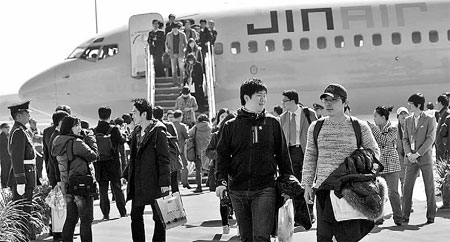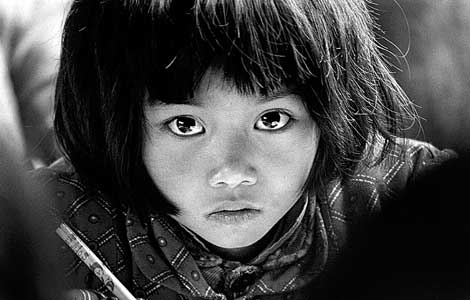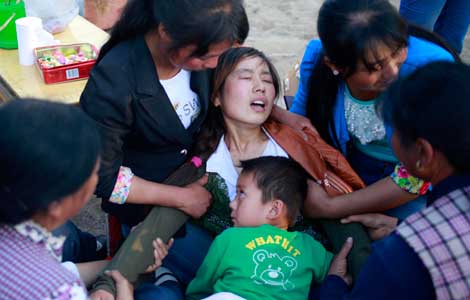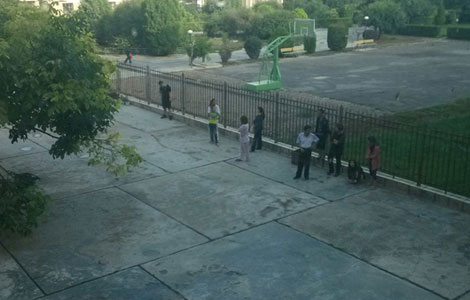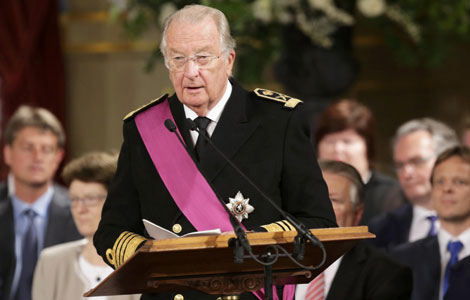Ningxia draws SK interest
Updated: 2013-07-23 07:19
By Zhong Nan in Yinchuan (China Daily)
|
||||||||
|
Direct flights between Yinchuan and Seoul began in March 2012, and more than 11,000 South Korean nationals have visited the city. Provided to China Daily |
South Korean companies will work closely with Yinchuan, the capital of the Ningxia Hui autonomous region, in commodity distribution, healthcare, urban services and tourism development, said South Korea's top diplomat to China.
Kwon Young-se, who became South Korea's ambassador to China in June, said that South Korean companies are keen to enhance their presence in Yinchuan.
"Yinchuan has the advantage of rich natural resources, Arabic-speaking graduates, a convenient market location and access to Arab markets in the Middle East, Central Asia and Europe though the New Eurasian Land Bridge from China's Lianyungang to Rotterdam in the Netherlands," Kwon said.
"There is huge potential for economic cooperation with South Korean companies as Ningxia steps up efforts for an inland, foreign-oriented economic trial zone," Kwon said.
China's State Council, or cabinet, approved the establishment of the first inland, foreign-oriented economic trial zone in Ningxia and the Yinchuan Bonded Area in September 2009. The goal is to offer more international trade, commercial and urban development opportunities for the region.
Dry-land farming, along with organic and halal food, are among Ningxia's main activities. Exports of Muslim commodities and textile products to Arab states and the Islamic world are Ningxia's main export industries.
Ningxia has also become an important destination in western China for relocating foreign and domestic industries, and it is China's personnel training base oriented toward the Arab states and the Islamic world.
Kwon led a South Korean business delegation to Yinchuan early this month, which included POSCO, Samsung, CJ and Hanwha groups, which have already moved some of their China operations to inland provinces, including Shannxi and Henan, to seek new market growth points.
Direct flights between Yinchuan and Seoul began in March 2012, and more than 11,000 South Korean nationals have visited the city. South Korea now is one of Ningxia's largest trading partners, with bilateral trade reaching $73.77 million last year.
"Though Yinchuan's GDP cannot compete with that of (major cities in) coastal provinces such as Zhejiang and Jiangsu at the moment, China is gradually developing new industrial bases in its western regions," said Xu Guangguo, Party chief of Yinchuan.
Xu said many foreign companies are seeking new opportunities during this transition, not only to expand in the Chinese market but also to sell their products to other foreign markets, especially wealthy Gulf states such as Saudi Arabia, the United Arab Emirates and Kuwait.
Ningxia has low-cost advantages in energy and labor. It has also invested 1.25 billion yuan ($203.6 million) in 48 infrastructure projects, half of which are roads, highways and bridges.
Ningxia already has five airports, and Chinese logistics companies such as SF Express (Group) Co, YTO Express Co Ltd and Shentong Express Co Ltd have been setting up regional-level service networks in Ningxia and surrounding provinces.
Liu Tianming, a senior researcher at the Ningxia Academy of Social Sciences in Yinchuan, said, "If you look at all the second-tier cities in China, Yinchuan makes a lot of sense."
Liu added that the city offers many tax incentives and preferential policies, which are essential parts of the central government's go-west campaign.
zhongnan@chinadaily.com.cn
(China Daily 07/23/2013 page16)
Most Viewed
Editor's Picks

|

|

|

|

|

|
Today's Top News
Quake in NW China kills 89, injures 700
US blacks, whites split on Zimmerman verdict: poll
Kissinger and Jiang see bright future for relations
China sees no major forex withdrawal: regulator
Business holds up for Minmetals arm
Beijing knife attack leaves one dead
Kate gives birth to a baby boy
ROK-DPRK industrial park talks end
US Weekly

|

|
